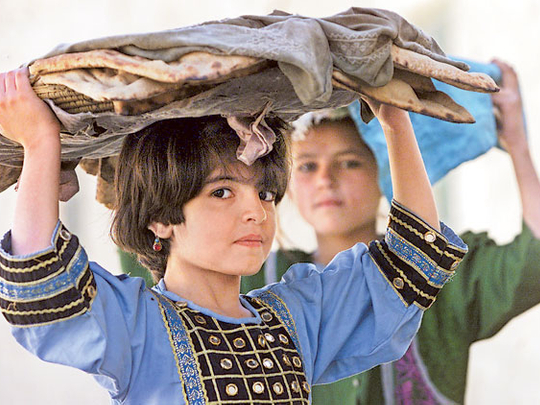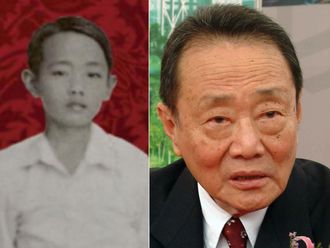
Dubai: A nation-wide food fortification programme aiming to reach 15 million people in Afghanistan has been announced in Kabul as a joint effort between several parties, including Afghanistan authorities and the Khalifa Bin Zayed Al Nahyan Foundation.
The programme, which is expected to last for at least three years, also includes the non-government organisation Global Alliance for Improved Nutrition (Gain) and the United Nations World Food Programme (WFP), a senior official at Gain said.
“If you look around the world at which countries have the worst [malnutrition] indicators, Afghanistan would be among the top ten,” Geneva-based Greg Garrett, Director of Gain’s Large Scale Food Fortification Program told Gulf News.
In the war-torn Asian country, the percentage of malnutrition among children is very high, the mortality rate is also high and many children also suffer from iodine deficiency.
“In general, people don’t have much to eat and often the food they eat doesn’t have a lot of nutritional value. This is why we chose Afghanistan,” said Garrett, adding that security and mobility are among the top challenges facing “almost any organisation working in Afghanistan”.
The programme to be launched on Sunday aims to reach 15 million Afghans in different parts in the country with more nutritious wheat flour, vegetable oil and ghee (clarified butter) in the next five years.
At a later stage, the aid officials hope to add iodised salt and raise the number to 20 million people.
“As the main donor to the project, we are excited to see local ownership across sectors and look forward to achieving the results and milestones we have set,” Mohammad Haji Al Khoury, Executive Director of the Abu-Dhabi based KBZF, was quoted as saying.
KBZF, which was established in 2007, has a mission of delivering humanitarian aid and services to poor populations in different parts of the world, and in times of emergency. Under the programme, Gain is providing financial support and technical expertise to produce the fortified foods, monitor their quality, create demand and develop technical guidelines for fortification.
“Chronic malnutrition, especially among women and children, is a terrible burden for the people of Afghanistan, both in terms of health and economic productivity,” noted Louis Imbleau, WFP Afghanistan Country Director and Representative. “Micronutrient fortification is a cost-efficient intervention that can really help tackle this problem.”











